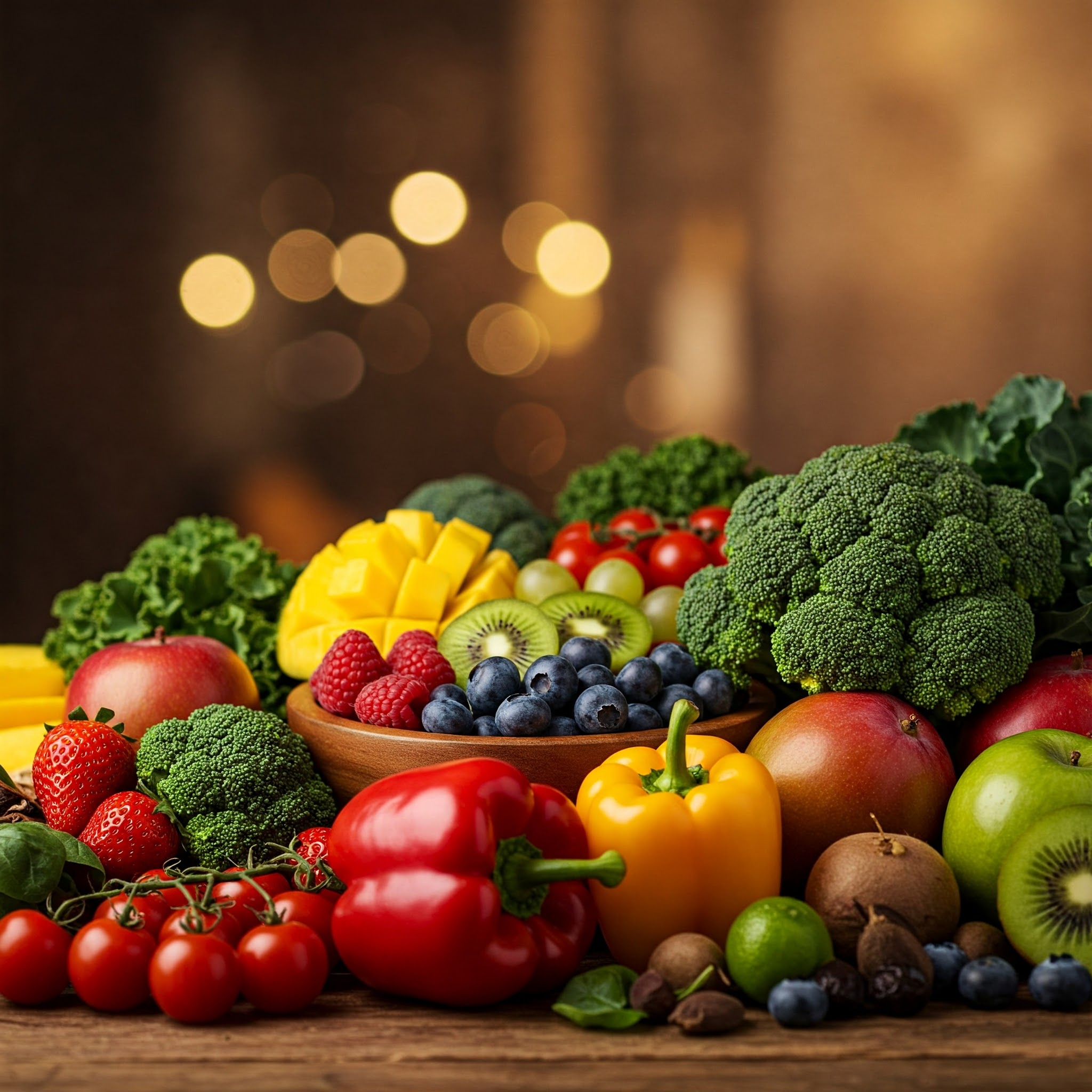Introduction: The Rise of Vegan Travel
Before diving into the details of vegan travel, it’s important to understand what being vegan truly means. A vegan lifestyle involves abstaining from the use of all animal products, not only in food but also in clothing, cosmetics and other consumer goods. This includes meat, dairy, eggs, honey, leather and wool. The motivation behind veganism often stems from ethical concerns for animal welfare, environmental sustainability and personal health.
Veganism is distinct from vegetarianism. While vegetarians avoid meat, they may still consume animal derived products like dairy and eggs. Vegans, on the other hand, eliminate all forms of animal products from their lifestyle.
The popularity of veganism is steadily growing worldwide. According to a 2023 report by Bloomberg Intelligence, the plant-based food market is expected to reach $162 billion by 2030, up from $29.4 billion in 2020. A 2022 Ipsos Global Advisor survey found that nearly half of consumers globally are actively trying to reduce their meat consumption, with younger generations driving this shift. Furthermore, Statista reports that veganism related Google searches have quadrupled in the last five years, indicating a rising global interest.
This guide is designed to support travellers who are committed to the vegan ethos or exploring plant-based travel for the first time.
Why Travel Vegan? Ethical, Environmental and Health Motivations
Traveling as a vegan isn’t just about food; it’s a lifestyle choice that reflects core values. Ethically, many vegans choose this path to avoid contributing to animal suffering. As global awareness of factory farming and animal exploitation grows, travellers are seeking ways to ensure their journeys align with their values.
Environmentally, veganism can reduce one’s carbon footprint. Animal agriculture is a major contributor to greenhouse gas emissions, deforestation and water pollution. By opting for plant-based options on the road, vegan travellers help combat climate change and foster sustainability.
Health wise, vegan diets are linked to lower risks of heart disease, obesity and certain cancers. For many, travel is also about wellness and maintaining a clean, plant-based diet supports energy, digestion and immunity while exploring new places.
How to Prepare for Vegan Travel
Researching Vegan Friendly Destinations
Before booking flights, it’s worth investigating how vegan friendly your destination is. Some cities and countries are known for their thriving plant-based scenes, while others may require more planning. Websites like HappyCow, Veganuary’s travel guides and vegan travel blogs offer a look into restaurant options, markets and cultural attitudes.
Creating a Vegan Packing List
Packing with intention makes a big difference. Essentials include reusable utensils, travel sized cruelty free toiletries, snacks like nuts and protein bars and perhaps even a portable blender if smoothies are a daily ritual. Don’t forget a few staple supplements, such as B12 or iron, especially for longer trips.
Knowing Local Terms for Vegan Foods
Language barriers can complicate food choices. Learn key phrases in the local language like “no meat,” “no dairy,” or “I’m vegan.” Translation apps and vegan travel cards can help you clearly communicate your dietary needs.
Top Vegan Friendly Travel Destinations
Berlin, Germany
Berlin is often dubbed the vegan capital of Europe. With an abundance of vegan restaurants, grocery stores and even a fully vegan supermarket chain (Veganz), it’s a dream for plant-based travellers.
Tel Aviv, Israel
Tel Aviv boasts a strong vegan movement supported by its Mediterranean cuisine, which naturally incorporates a variety of legumes, grains and vegetables. Vegan shawarma, hummus and falafel are readily available.
Portland, Oregon, USA
With a reputation for progressiveness, Portland offers a diverse and eclectic vegan scene. From food trucks to upscale dining and even vegan donut shops, this city is incredibly accommodating to cruelty free living.
Chiang Mai, Thailand
Known for its spiritual culture and wellness retreats, Chiang Mai has an abundance of vegan friendly restaurants, especially near the Old City. Thai cuisine also lends itself well to plant-based adaptations.
Melbourne, Australia
Melbourne is a multicultural hub with a thriving vegan community. The city’s numerous farmers’ markets, health food stores and plant-based cafes make it an ideal spot for travellers.
Ubud, Bali, Indonesia
A hotspot for yoga and mindfulness, Ubud offers numerous vegan cafes nestled in lush surroundings. It’s an excellent destination for those seeking plant-based food and holistic wellness.
India
India is one of the most vegan friendly countries in the world, thanks to its deep cultural and religious traditions of vegetarianism. Many Indians follow plant-based diets influenced by Hinduism, Jainism and Buddhism; that emphasize ahimsa (non violence) and compassion toward all living beings. As a result, a large portion of the population identifies as vegetarian and veganism is a natural extension for many.
Cities such as Bengaluru, Mumbai and Ahmedabad are thriving hubs for vegan food, offering a wide selection of restaurants, street food and home style meals made with lentils, vegetables, rice and spices. South Indian cuisine in particular is often naturally vegan, with dishes like dosa, idli, sambar, rasam and coconut chutneys commonly free from animal derived ingredients.
Vegan Travel on a Budget
Affordable Plant-Based Eateries
Many cities offer budget friendly vegan options, especially in areas with high student populations or vibrant youth cultures. Local markets, food stalls and co ops often provide delicious meals for just a few dollars. Apps like HappyCow and Google Maps can filter vegan friendly spots by price range.
Couchsurfing and Eco Stays
Couchsurfing is not only a great way to save money on accommodation but also an opportunity to connect with locals who may share your dietary values. Many eco-lodges and hostels now cater specifically to vegans, offering shared kitchens, communal plant-based meals and sustainable amenities.
Volunteering in Vegan Communities
Consider exchanging time for room and board at vegan farms etc through platforms like Workaway, WWOOF (World Wide Opportunities on Organic Farms) and HelpX. These experiences offer immersion in the vegan lifestyle while cutting down on travel expenses.
Vegan Air Travel Tips
Ordering Vegan Meals on Flights
Most airlines offer vegan meal options, but you’ll typically need to request them in advance, ideally at the time of booking, or at least 48 hours before departure. Look for terms like “VGML” (Vegetarian Vegan Meal) in the meal selection section.
Snacks to Bring on Planes
Always pack your own snacks in case airline meals fall short. Nut mixes, dried fruits, energy bars, sandwiches and instant oats are great choices that travel well and provide energy for long flights.
Navigating Layovers and Airports
Airport food courts can be hit or miss for vegan travellers. Scout ahead using apps or airport websites and look for juice bars, salad stations, or restaurants with customizable menus. Some airports like LAX, JFK and Amsterdam Schiphol now feature fully vegan or vegan friendly dining options.
Finding Vegan Food on the Go
Using Apps like HappyCow
HappyCow is the gold standard for vegan and vegetarian travel. It allows you to search by location, read reviews and filter for fully vegan or ‘veg’ friendly establishments. Alternatives include abillion and Vanilla Bean.
Navigating Street Food and Local Markets
Street food is a fantastic way to experience local culture, but ingredients aren’t always obvious. Stick to dishes that are naturally plant-based and don’t hesitate to ask vendors about preparation methods. Many countries have staple vegan foods like rice and beans, falafel, or vegetable curries.
Vegan Symbols and Product Labels Abroad
When shopping at supermarkets abroad, familiarize yourself with the local vegan certification symbols. These logos can be a quick way to identify safe options without deciphering complex ingredient lists. You can also use apps like Is It Vegan? or scan barcodes with food transparency tools.
Staying Vegan in Remote Areas
Self Catering and Local Markets
One of the most effective approaches is to stay in accommodations with kitchen access. This allows you to cook your own meals using fresh produce from local markets. In many remote areas, whole foods like rice, beans, vegetables and fruits are readily available and inexpensive.
Finding Hidden Gems Through Locals
As we have already alluded, locals can be incredible resources when it comes to uncovering vegan friendly spots that aren’t listed online. Engage with your hosts, guides, or community members, many are happy to recommend dishes, or even prepare vegan versions of traditional meals if you explain your dietary needs kindly and clearly.
Vegan Travel Gear Essentials
Reusable Cutlery and Containers
Carry a travel cutlery set, reusable food container and stainless steel or bamboo straw. These are helpful for takeout meals and reduce your environmental impact while on the road.
Travel Water Filters and Bottles
In countries where tap water isn’t safe to drink, a reusable water bottle with a built-in filter can save you money and reduce plastic waste. Brands like LifeStraw and GRAYL are popular choices among eco-conscious travellers.
Cruelty Free Toiletries and Sunscreen
Pack travel sized toiletries that are certified vegan and cruelty free. Look for labels like Leaping Bunny or Vegan Society. Don’t forget sunscreen, some popular brands may still test on animals or contain animal derived ingredients.
Cultural Sensitivity and Communication Tips
Respecting Local Customs
It’s important to be sensitive to the culinary traditions and social norms of the places you visit. Even when declining animal products, strive to do so respectfully and with gratitude. Expressing curiosity and appreciation for local plant-based cuisine can go a long way.
How to Politely Decline Non Vegan Offers
When offered food that doesn’t align with your values, it’s okay to politely decline. A warm smile, respectful explanation, or even a pre-written translation card can help avoid awkwardness or offense. Many travellers find that honesty combined with kindness is the most effective approach.
Vegan Volunteering & Retreats Around the World
Organic Farms and Animal Sanctuaries
Platforms like WWOOF, Workaway and HelpStay offer opportunities to work on organic farms, many of which align with vegan principles. Tasks might include gardening, permaculture, or animal care at rescue sanctuaries. These experiences not only reduce travel costs but allow for cultural exchange and skill building.
Yoga and Wellness Retreats with Vegan Menus
Health and wellness retreats and getaways are increasingly offering fully plant-based menus. Destinations like Costa Rica, India, Portugal and Bali are known for their yoga retreats, many of which are vegan friendly or can accommodate dietary requests. These retreats blend mindfulness, movement and nourishing food in serene environments.
Sustainable & Ethical Travel Practices
Reducing Waste While Traveling
Bring your own bags, containers and reusable gear to cut down on single use plastics. Opt for digital tickets over paper ones and be mindful of your energy and water use in accommodations. Many eco-hotels provide guidance on how to reduce waste during your stay.
Supporting Vegan and Local Businesses
Prioritize spending at locally owned, plant-based establishments. These businesses are more likely to support sustainable practices and contribute directly to the local economy. Seek out community led initiatives, farmers’ markets and cooperatives where your money goes further and aligns with your ethics.
Navigating Language Barriers
Translation Cards and Phrase Apps
Pre-written translation cards that clearly state your dietary needs can be a lifesaver. You can find printable vegan travel cards online in dozens of languages or use apps like Google Translate, SayHi, or TripLingo to communicate essential phrases quickly and accurately.
Learning Basic Phrases in Local Language
Knowing how to say simple phrases such as “I am vegan,” “No meat, dairy, or eggs, please,” and “Does this contain animal products?” in the local language can make a huge difference. Locals are often more receptive and helpful when travellers make an effort to speak their language.
Online Vegan Travel Communities and Blogs
Connecting with Like Minded Travellers
Online forums and social media groups such as Vegan Travel, Reddit’s r/vegan travel and Facebook communities offer a space to ask questions, share experiences and find travel buddies. Many travellers even organize meetups or join vegan travel tours together.
Trusted Influencers and Resources
Following vegan travel influencers and bloggers can uncover hidden gems you might not find in mainstream guides. Some popular names include @veganfoodandtravel, @thenomadicvegan and @veganbackpacker. Their first-hand experience and honest reviews make planning smoother and more exciting.
Final Thoughts: Thriving as a Vegan Traveller
Vegan travel is no longer a fringe lifestyle, it’s a global movement that continues to grow and diversify. With a bit of planning and curiosity, traveling as a vegan can open doors to deeper cultural connections, a healthier lifestyle and more conscious choices.
Whether you’re trekking through remote mountains, navigating street food stalls, or dining at a luxury vegan bistro, each journey affirms your values and builds a compassionate, sustainable future. So pack your bags, prep your snacks and get ready to explore the world, one plant-based plate at a time.
FAQs
What countries are easiest for vegan travellers?
Countries like Germany, Israel, the United States (especially cities like Portland and Los Angeles), Thailand, India and the UK are known for their vegan friendly options.
How do I find vegan food in non vegan countries?
Use apps like HappyCow, join local vegan communities and seek out plant-based staples in local cuisine. Learning key phrases in the local language can also help a lot.
Can I maintain proper nutrition while traveling vegan?
Yes, with a little planning. Focus on whole foods like legumes, grains, fruits and vegetables and bring supplements like B12 if necessary.
What are the best vegan travel resources?
HappyCow, abillion, VeganTravel.com, The Nomadic Vegan blog and social media groups dedicated to vegan travel are excellent starting points.
How do I stay motivated to eat vegan while abroad?
Remind yourself of your core values, connect with local vegan communities and celebrate the abundance of plant-based foods available around the world. Traveling can actually strengthen your commitment.




